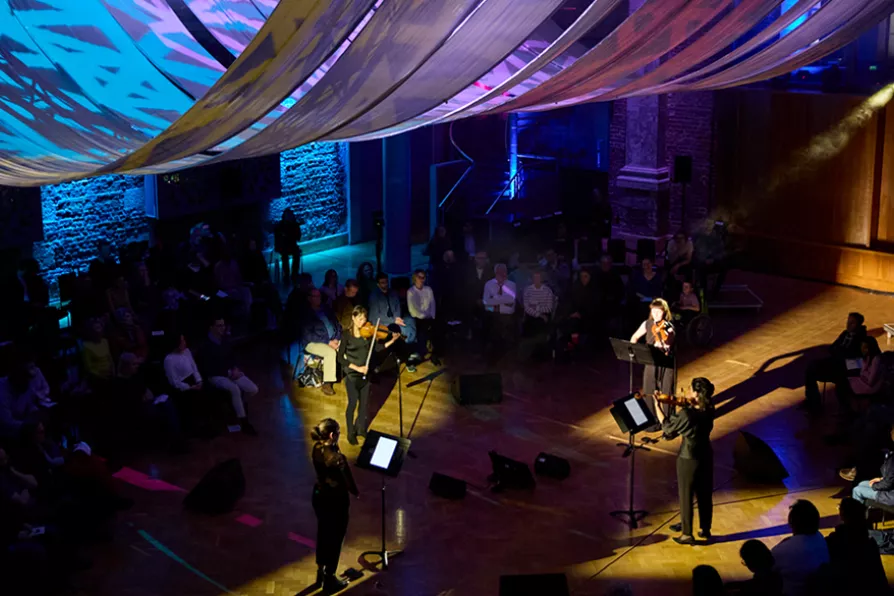The bard pays homage to his two muses: his wife and his football club

 Anselm McDonnell's The Expanded Violin at LSO St Lukes, London
[Kevin Leighton]
Anselm McDonnell's The Expanded Violin at LSO St Lukes, London
[Kevin Leighton]
The Expanded Violin
LSO St Luke’s London
EIGHT composers, curated by Anselm McDonnell, were given the brief to explore the tonal and sonic boundaries of the violin in his second event for the LSO in 2024.
The Irish-Welsh composer based in Belfast has composed over 90 works for orchestra, chamber groups and electronics, performed all over the world, and for this event two of his works were performed.
The musicians Mira Benjamin, Larissa O’Grady, Chihiro Ono and Amalia Young made up the quartet, who also used an assortment of electronic backing. They played in the round in Jerwood Hall under a constructed sound absorbent baffle, with a tasteful projection of shifting shapes and subtle tonal lighting, designed to match the mood of each composition.

This is a concert of ambition and courage by organist and improviser Wayne Marshall, says SIMON DUFF













